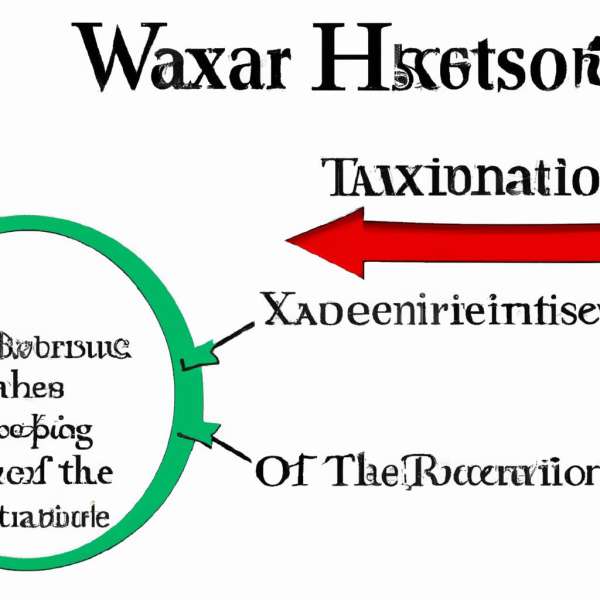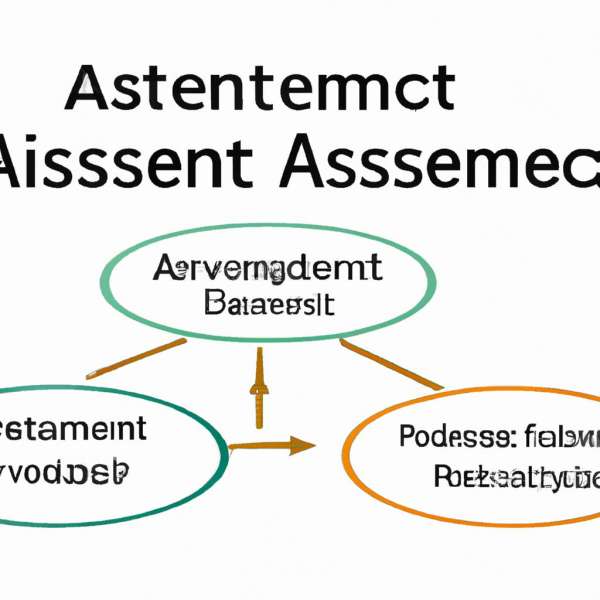In a world where the winds of change blow swiftly and unpredictably, ensuring that your hard-earned wealth endures beyond your lifetime is a pursuit worthy of careful consideration. Estate planning, often viewed as a daunting task reserved for the wealthy or those in their twilight years, is, in truth, a vital strategy for individuals from all walks of life. It serves not only as a safeguard for financial assets but also as a blueprint for preserving familial legacies and values across generations. In this article, we will explore the multifaceted role of estate planning in wealth preservation, uncovering its significance in navigating legal complexities, mitigating tax burdens, and ensuring that your intentions are honored—ultimately providing peace of mind for both you and your loved ones. Join us as we delve into the essential aspects of estate planning, revealing how, with thoughtful preparation, you can cultivate a lasting legacy that reflects your unique journey.
The Essentials of Estate Planning for Securing Your Wealth
Estate planning is a proactive approach to managing your wealth, ensuring that your assets are distributed according to your wishes after your passing. It’s much more than just writing a will; it’s about creating a comprehensive strategy that encompasses various elements to protect your legacy. Key components of effective estate planning include:
- Wills and Trusts: Legally binding documents that specify how your assets will be divided and managed posthumously.
- Powers of Attorney: Appointments of trusted individuals to make financial or health decisions on your behalf if you become incapacitated.
- Beneficiary Designations: Regularly updating beneficiary information ensures that your assets go directly to your chosen individuals, bypassing probate.
- Tax Implications: Understanding the tax landscape can help minimize the tax burden on your heirs, preserving more of your wealth.
Utilizing trusts can be particularly beneficial not only for **avoiding probate** but also for maintaining privacy around your financial affairs. A revocable living trust allows for flexibility during your lifetime, while an irrevocable trust can help shield assets from creditors and estate taxes after your death. Moreover, family dynamics play a crucial role; having open discussions can prevent disputes and ensure everyone understands their part in your wishes. It’s about more than just dollars and cents; it’s about preserving family harmony.
To assist in this complex process, many people find it helpful to consult with professionals like estate planning attorneys or financial advisors. These experts can provide tailored advice that reflects your unique situation and goals.
| Estate Planning Tool | Purpose |
|---|---|
| Will | Distributes assets and appoints guardians for minors |
| Trust | Manages assets during and after life, avoids probate |
| Power of Attorney | Assigns decision-making authority during incapacity |
| Health Care Proxy | Designates someone to make medical decisions |
Ultimately, the goal of estate planning is to secure your wealth for future generations while ensuring your wishes are honored. By laying the groundwork now and addressing potential challenges, you can create a lasting legacy that reflects your values and priorities.

Understanding the Tax Implications of Inheritance and Wealth Transfer
When it comes to the transfer of wealth, understanding the tax implications can feel like navigating a labyrinth. Inheritances and wealth transfers are often subject to a variety of taxes that can significantly impact the value of the estate passed on to heirs. The most common tax types you might encounter include property taxes, capital gains taxes, and inheritance taxes. Each of these taxes has its own set of rules and exemptions, and can vary greatly from one jurisdiction to another.
To effectively plan for these tax implications, estate planning plays a crucial role. By strategically structuring assets and understanding the specific laws applicable to inheritance and wealth transfer, individuals can minimize the tax burden on their heirs. Here are some strategies that can be included in a robust estate plan:
- Establishing Trusts: Using trusts can help to reduce estate taxes and provide a clear framework for asset distribution.
- Gift Giving Strategies: Employing annual gifting strategies can enable individuals to transfer wealth to heirs while staying within gift tax exclusions.
- Tax-Deferred Accounts: Considering tax-deferred retirement accounts can allow assets to grow without immediate tax implications.
Creating a well-informed estate plan not only mitigates tax exposure but can also ensure a smoother transition of assets to beneficiaries. It’s essential to consult with a qualified estate planner or tax advisor who can provide guidance tailored to your specific situation, helping to navigate the labyrinthine tax landscape.
| Tax Type | Description | Possible Exemptions |
|---|---|---|
| Estate Tax | Tax on the total value of the deceased’s estate before distribution. | Spousal exemptions, charitable deductions. |
| Inheritance Tax | Levied on the value of the inheritance received by the heirs. | Exemptions based on relationship to deceased. |
| Capital Gains Tax | Tax on the profit made from selling inherited assets. | Step-up in basis at the time of inheritance. |
By approaching estate planning with an understanding of these tax implications, individuals can work toward preserving their wealth and ensuring that their investments—and legacies—continue to thrive for future generations.
Strategies for Effective Asset Protection and Risk Management
Effective asset protection and risk management are crucial elements of a sound estate plan, safeguarding your wealth against unforeseen challenges. One of the primary approaches is to diversify your investments. By spreading your assets across various sectors, such as real estate, stocks, and bonds, you mitigate risks associated with any single investment. This strategy not only helps to stabilize your portfolio but also enhances your potential for growth.
Another critical strategy involves establishing trusts. **Irrevocable trusts** can shield assets from creditors and lower your taxable estate. By transferring assets into a trust, you relinquish control, but gain the peace of mind that your wealth is protected for future generations. Similarly, **living trusts** facilitate a seamless transfer of assets upon your passing, helping to avoid probate and ensuring that your wishes are honored without public scrutiny.
Consider also the role of **insurance** in asset protection. Comprehensive policies can safeguard against specific risks, providing a financial buffer that prevents significant losses. Conference with a skilled advisor can help identify the types of coverage best suited for your circumstances, such as liability insurance or umbrella policies.
| Strategy | Benefits |
|---|---|
| Diversification | Reduces risk, stabilizes returns |
| Establishing Trusts | Protects assets, simplifies transfer |
| Insurance Coverage | Provides financial protection |
Lastly, reviewing and updating your estate plan regularly ensures that your asset protection strategies remain effective. Life circumstances, laws, and economic conditions change; staying proactive about adjustments and reallocations can safeguard your wealth, keeping it resilient against the inevitable uncertainties of life.

The Importance of Regularly Updating Your Estate Plan
Estate planning is not a one-time event; it is a dynamic process that necessitates regular reviews and updates to align with your life changes and evolving financial situation. Life is unpredictable; changes such as marriage, divorce, the birth of a child, or the acquisition of new assets can significantly affect your estate plan. By neglecting to review your plan frequently, you risk creating gaps that could lead to disputes among beneficiaries or unintended consequences for your heirs.
Consider the following scenarios that may prompt an update to your estate plan:
- Changes in Family Structure: Adding or losing a family member can have profound implications for your wishes regarding guardianship and inheritance.
- Significant Financial Changes: Increases or decreases in wealth may require reevaluation of trusts, tax implications, and distribution plans.
- Relocation: Moving to a new state may subject your estate to different laws affecting how your estate is managed and distributed.
In addition, regular updates help ensure that legal documents reflect your latest intentions and take advantage of current tax laws and policies. For instance, modifications in federal and state tax regulations can affect how your assets are taxed and how much your beneficiaries ultimately receive. The following table summarizes key documents that should be reviewed regularly:
| Document Type | Frequency of Review | Reason for Review |
|---|---|---|
| Will | Annually | Reflects changes in beneficiaries or assets |
| Trusts | Every 3-5 years | Ensures effectiveness and tax optimization |
| Power of Attorney | Annually | Updates to the designated agent or financial situation |
| Healthcare Proxy | Every 2 years | Changes in health or personal desires |
Taking the time to regularly update your estate plan not only facilitates smoother transitions for your loved ones but also embodies a proactive approach toward wealth preservation. By staying informed and making necessary adjustments, you grant yourself peace of mind, knowing your assets are protected and your legacy is upheld as you envision it.
Key Takeaways
As we draw the curtains on our exploration of estate planning and its pivotal role in wealth preservation, it becomes clear that this essential practice transcends mere paperwork and legal jargon. It is a thoughtful strategy, a protective shield for your legacy, ensuring that your assets continue to serve your goals and values long after you’re gone. Just as a gardener tends to their plants with care, nurtures their growth, and plans for the seasons ahead, so too must we cultivate our financial legacies with intention and foresight.
In a world where the unexpected is the only constant, estate planning offers a sense of control and calm, safeguarding not just wealth but the dreams and aspirations tied to it. By embracing this proactive approach, individuals can create a blueprint that honors their wishes, protects their loved ones, and strengthens the foundations of future generations. As you embark on your own estate planning journey, remember: it’s not just about the wealth you leave behind, but the values, lessons, and love that endure through time.
Ultimately, the essence of estate planning lies in preparation and peace of mind. With the right guidance and a clear vision, you can ensure that your legacy is not just preserved, but thrives—echoing your life’s story in the hearts of those you cherish. In this way, the art of estate planning transforms from a daunting task into a lasting gift, resonating through the lives of loved ones and the communities they touch. So, take that first step; your legacy awaits.


